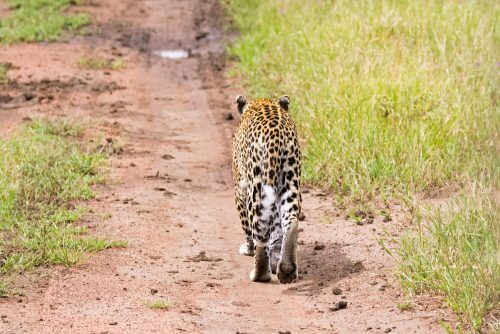A report by the WWF (World Wildlife Fund) published on October 30, 2018 reveals how our actions severely damage the natural world - the basis on which our livelihood depends

Author: Tom Oliver, Professor of Applied Ecology, University of Reading
A report by the WWF (World Wildlife Fund) published on October 30, 2018 reveals how our actions severely damage the natural world - the basis on which our livelihood depends. The report reveals that between 1970 and 2014, the population of vertebrates: mammals, fish, birds, amphibians and reptiles, was reduced by 60%. South and Central America were hit particularly hard, with declines of 89%.
The report is one of the most comprehensive global analyzes of biodiversity, but it has limitations. It tracks only vertebrates, sampling is uneven across different ecosystems, and it ignores genetic diversity.
Also, it is worth noting that other global studies have reported additional data related to the decrease in biomass." A study that focused on species of plants and insects, estimates that there was a decrease in the frequency of species of about 11%, and a study from Germany found a decrease of 75% in the biomass of flying insects in 27 The last years until 2016.
All these studies support the conclusion that we are losing biodiversity at an alarming rate.
The big debate
There are two main arguments in the debate about the loss of wildlife. The first is that the loss of the natural environment is a necessary and acceptable result of human progress. Historically, our wealth has grown through the exploitation of the natural environment, which has allowed us to live richer lives with greater freedom of opportunity.
Contrary to this, the second claim) is that this may cause the loss of biodiversity and therefore also threaten the life support system of our small planet - the ability of the biosphere to regulate our climate, pollinate our crops, purify our water and break down our waste. Biologist Paul Ehrlich once compared the loss of species in an ecosystem to the constant removal of nails from an airplane: the airplane may fly for a while, but eventually it will fall out of the sky.
Such concerns have led to attempts to quantify "safe limits" of biodiversity loss, or so-called "planetary limits" that we must not cross or we may reach a point of no return. Despite the attractive idea, there are difficulties in its execution. One is the uncertainty of the extent of biodiversity loss, and the other is the impact of these losses on human livelihoods.
To make a comparison with climate change, many governments have only committed to action once the phenomenon can be tackled with reasonable economic impacts that can be quantified through rigorous analysis that combines climate science and economics. Therefore, there is an urgent need for new approaches to quantify the risk more accurately and to adopt diverse modes of action).
But even if we can assess the risks, can we actually stop the loss of biodiversity?
We know with some certainty what the risks of global warming are, but countries are struggling to meet their Paris commitments, not to mention even greater emissions reductions, to prevent a warmer world.
Responsibility games
I was recently involved in a multidisciplinary analysis of the global food system (one of the main culprits in the loss of biodiversity), which identified a variety of mechanisms designed to reverse the food system from marching down an unsustainable path.
People often feel powerless to change such global systems and point to factors at the level of government policy, such as future extension and renewal of the Convention on Biological Diversity.
Although smart governance is an essential factor, many factors that contribute to the decline of biodiversity operate on a personal level, such as our dietary and consumer choices. Also, the structure of our institutions ultimately reflects our individual minds, so we have the opportunity to initiate positive change by recognizing our dependence on nature. However, the rise in levels of individualism has encouraged an economy that caters to private interests at the expense of nature.
Through our purchases we can destroy the environment on the other side of the world, so the WWF report provides better data that will allow us to connect consumers with the results of their actions. On the plus side, our increasingly connected world can allow social persuasion to find other ways to play. Small personal changes can add up and cause a different kind of "tipping point" towards a more sustainable way of life.
If we really want to stop the loss of biodiversity and of course ensure a safe future for current and future generations on Earth's spaceship, we need to think beyond the government, and forget the selfish "I" - the solutions start with "we."
https://theconversation.com/tipping-point-huge-wildlife-loss-threatens-the-life-support-of-our-small-planet-106037
